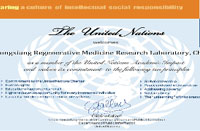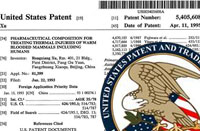Scientist sues Nobel assembly for awarding medicine prize to wrong people
Re: Scientist sues Nobel assembly for awarding medicine prize to wrong people
13 December 2012
Rongxiang Xu’s legal challenge to the Nobel Prize awarding body reminds us of many such disheartened scientists in history of Nobel Prizes. Going public with their feelings of angst is not new. Raymond Damadian,the patent holder for magnetic resonance imaging (MRI), expressed himself by putting out full page advertisements in The New York Times and other prominent newspapers (1). Claiming to be the original inventor of MRI, he thought that he should have shared the prize won by Paul Lauterbur and Peter Mansfield for the work on MRI. There are many such examples i.e. Lisa Meitner (discovered nuclear fission), Oswald Avery (discovered DNA in 1944), Jocelyn Bell Burnell (discovered the radio pulsar), Rosalind Franklin (showed DNA structure photographs to Crick) etc. but the protests are usually confined to and with in the scientific fraternity.
Winning a Nobel Prize is the index of global acceptance of any scientist’s work. Given the inherent extra-ordinariness of such prize winning studies, controversies are a possibility given the peer review systems that are never fool proof. The lack of scientific consensus in evaluating the merits of such extraordinary studies can be easily appreciated from the compilation of many such peer discrepancies by Juan Miguel Campanario(1).
Public protests & legal suits may not be the best platforms for scientists like Rongxiang Xu to communicate their point to seek justice. But, the recourse to arbitration in this manner, is a reflection on our community’s role as trustee of mechanisms that ensure due recognition of scientific merit. Our peer review systems, journal boards, scientific committees & organisations like Nobel Committee need to strengthen the systems further so as to avoid spillage of scientific discontent to public domains. It is more pertinent for award like Nobel, that can’t be awarded posthumous or be shared by more than a fixed number of people. By publishing this news BMJ has proven that the scientific journals should also be fulfilling the responsibility of being a ‘watch dogs’ and not just‘cheer leaders’ always(2).








